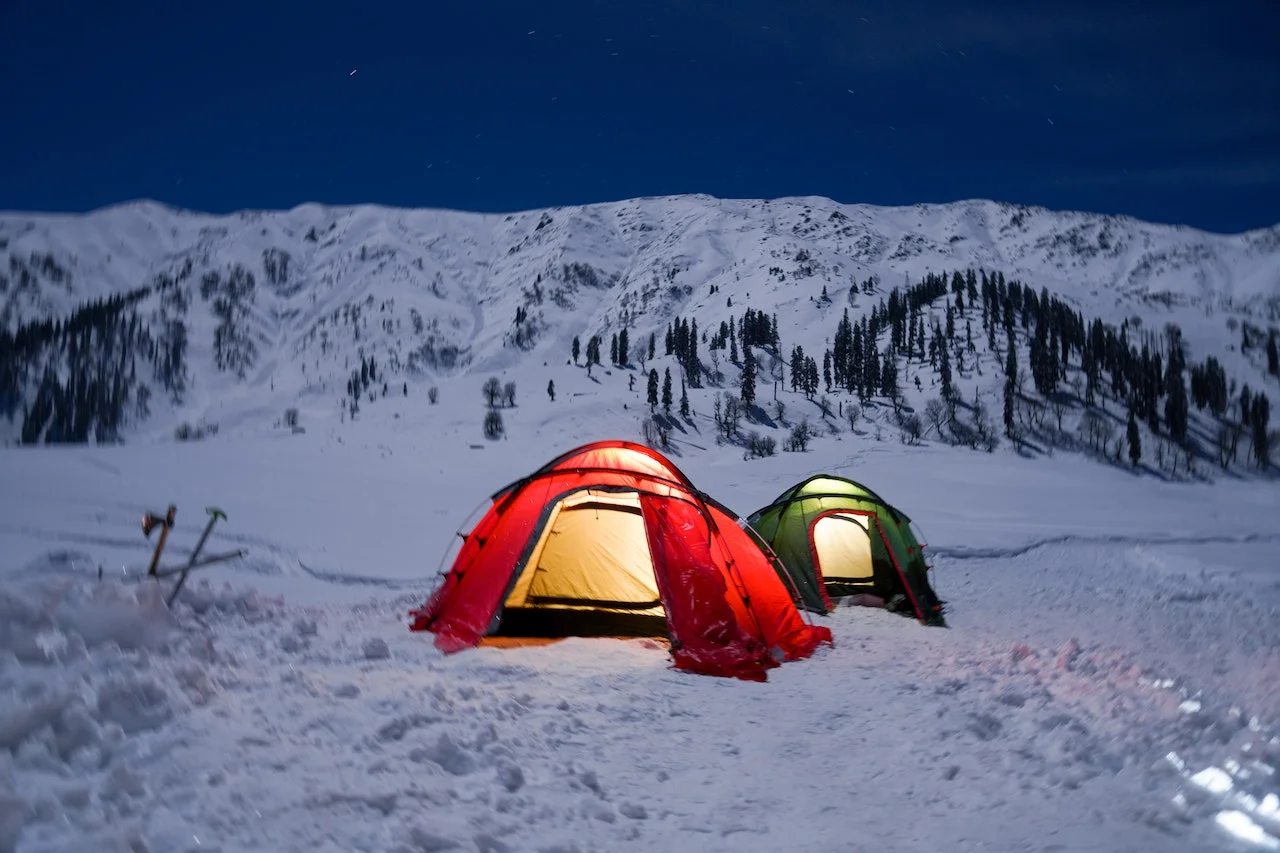
Camping in the wilderness during winter offers a unique adventure experience. You’ll experience quiet sleepy nights, sleep under the stars, and be surrounded by ice or snow, making this season a special time to camp. Nevertheless, you must ensure you bring essential gear and items for camping during winter.
According to Forbes, camping during winter requires extra planning and gear compared to summer camping. Therefore, failing to pack certain things essential for winter camping can make your camping experience depressing or even pose health risks. That’s why you should consider the following essential things you must bring along when going camping during winter:
1. Shelter to Safeguard Against the Elements
When camping during winter, sheltering away from the elements is essential, and you must prepare for it. Even when the conditions are sunny and clear, the weather can abruptly change into snow, rain, or sleet. Below are some of the essential gear and items you should pack when going camping during winter:
- Tent footprint
- Tent
- Tarp
- Tent necessities, including tent repair kit, extra rope, extra stakes, etc.
2. Clothing to Safeguard You against Cold Winter Conditions
When camping in winter, you must bring appropriate clothing that protects you against cold. It’s equally paramount that you steer clear of any wet clothing to avoid cases of hypothermia when camping during winter. Below is a checklist of the type of clothing you shouldn’t miss to carry while going camping during winter:
- Authentic tactical military shemagh to keep you warm. The scarf is naturally breathable, warm, and made from soft fabric to keep you comfortable and warm.
- Long underwear made from polypropylene, fleece, or wool.
- An insulated jacket or shell jacket
- Long sleeved shirt
- A warm hat, including a stocking hat made from wool or fleece
- Hiking or waterproof boots
- Mittens or gloves made from wool or fleece
- Sunglasses
- Rain boots and raincoat, etc.
3. First Aid Kit
High or low body temperatures can cause serious health risks, particularly if it results from elements and you have no means to regulate the temperature accordingly. Thus, a first aid kit is a must-have essential winter camping item.
Moreover, you must ensure you understand the basics of treating hypothermia so that you can use your first aid kit. Hypothermia results when your body dissipates more heat than it generates, leading to a dangerously low body temperature. Besides being useful during hypothermia treatment, bringing a first aid kit can also play a critical role if other emergencies occur. Explore some of the contents your first aid kit should have below:
- Sunscreen
- Personal medications
- Hand sanitizer
- Tape or microfiber
- Bandages
- Insect repellant
- Thermometer, preferably a digital one, as it’s easy and accurate to read
- Safety pin, tweezers, scissors, etc.
4. Bottle Insulator
Storing cold water in a bottle during winter hikes and camping may lead to several issues. First, when the temperatures drop significantly, the water in the bottle can start freezing, rendering it impractical to drink. Secondly, drinking cold water during winter may reduce your body temperature, leading to hypothermia. r
Consider using non-PET plastic water bottles while camping in winter since they can endure extremely cold conditions, provided the bottle is insulated. Alternatively, you can buy or make a bottle jacket using mitten or wool to act as insulation.
5. Leg Gaiters
When packing for winter camping, leg gaiters may not be a priority. However, you’ll realize their importance when trekking on snow. They’re intended to protect your legs and pants, preventing the moisture and snow from making you wet.
6. Fire Starting Gear
Starting a fire when camping in winter can be challenging if you fail to prepare for it by bringing along appropriate fire-starting equipment. Therefore, ensure you bring windproof matches, dry wood, and a lighter, among other essential fire-starting gear.
7. Hiking Poles
Hiking during winter when snow is filled all over the ground can be daunting if you forget to bring your hiking poles. Ensure you get extendable hiking poles with anti-shock capabilities and comfortable to hold.
8. Extra Food
During the winter, the human body tends to burn more calories to keep you warm. For this reason, you must pack some extra high-energy food types ideal for winter camping. Moreover, ensure you opt for food with low sulfur, processed chemicals, and sodium.
Final Word
Winter camping may be challenging, but if you prepare adequately, you can have a unique and unforgettable winter camping experience. Bring along the eight essential items highlighted above, and you’ll be a step closer to having a memorable winter camping experience of your lifetime.
